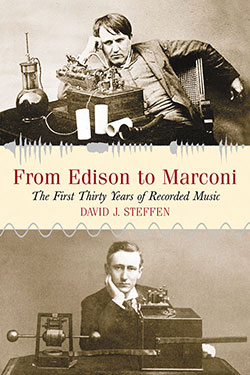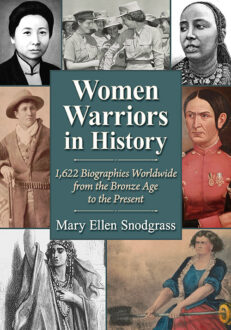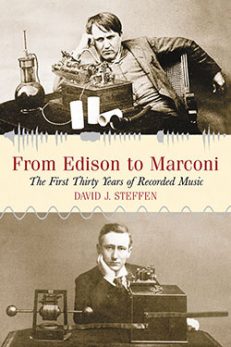From Edison to Marconi
The First Thirty Years of Recorded Music
Original price was: $29.95.$14.99Current price is: $14.99.
In stock
About the Book
Like any profound technological breakthrough, the advent of sound recording ushered in a period of explosive and imaginative experimentation, growth and competition. Between the commercial debut of Edison’s “talking machine” in 1889 and the first commercial radio broadcast three decades later, the recording industry was uncharted territory in terms of both technology and content.
This history of the earliest years of sound recording—the time between the phonograph’s appearance and the licensing of commercial radio—examines a newly created technology and industry in search of itself. It follows the story from the earliest efforts to capture sound, to the fight among wire, cylinder and disk recordings for primacy in the market, to the growth and development of musical genres, record companies and business practices that remain current today. The work chronicles the people, events and developments that turned a novel, expensive idea into a highly marketable commodity. Two appendices provide extensive lists of popular genre and ethnic recordings made between 1889 and 1919. A bibliography and index accompany the text.
About the Author(s)
Bibliographic Details
David J. Steffen
Format: softcover (6 x 9)
Pages: 255
Bibliographic Info: appendices, notes, bibliography, index
Copyright Date: 2005
pISBN: 978-0-7864-2061-2
eISBN: 978-0-7864-5156-2
Imprint: McFarland
Table of Contents
Acknowledgments vii
Preface 1
Introduction 7
1. The Ancients and the Jukebox Phenomenon 15
2. Inventing the Music Industry 20
3. Edison’s Invention 23
4. Cylinders, Discs, and Vision 26
5. A Consumer Business or a Business Technology? 31
6. “A&R”: Artists and Repertoire 35
7. Speaking of Money, and the Jukebox 42
8. Toward Mass Production 48
9. Recording and Recordings 52
10. Sound, Quality, and Topicality 59
11. A Popular Product and a Consumer Market 66
12. A&R in the Early Years—Styles and Genres 73
13. Of Places, Performers, and Songs 75
14. Type, Style, Genre, Tempo 84
15. Most of the Music 92
16. Immigration and Recordings 109
17. Culture Swing—The Ethnic Recordings 125
18. Images, Music, and the Inevitable Transition 159
19. The Caruso Effect 165
20. Enter Marconi 174
Appendix 1. Recordings in Popular Non-Ethnic Genres, 1889–1919 179
Appendix 2. Ethnic Recordings, 1889–1919 185
Notes 217
Bibliography 229
Index 238
Book Reviews & Awards
“highly recommended”—Choice.





